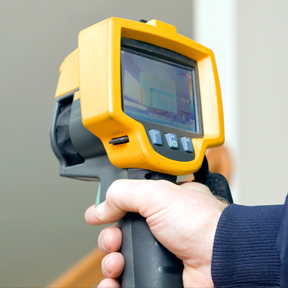Getting help with an energy efficiency audit
Energy audits can identify ways in which your business can save money on its energy bills.
Carrying out your own energy survey is as simple as checking energy bills and walking around your premises to measure the energy use of all the things that use energy. The other alternative is to bring in an expert who audits your premises and identifies where you can reduce energy use.
If you bring in an outside expert, there are three new Australian Standards for energy auditing that they should adhere to. These are:
- AS/NZS 3598.1, Energy audits, Part 1: Commercial buildings
This audit is for companies that operate in commercial buildings.
- AS/NZS 3598.2, Energy audits, Part 2: Industrial and related activities
This audit is for companies with industrial and related activities.
- AS/NZS 3598.3, Energy audits, Part 3: Transport related activities
This audit is for companies that carry out transport related activities.
These new standards allow businesses to get a more targeted energy audit that better enables them to assess the energy performance and efficiency of their operations.
Once you have chosen the audit standard that is best suited to your type of business, there are three levels of audit that you can choose to undertake. The level to which you should have your business audited depends on:
- availability of sufficient data for a detailed energy audit
- the level of detail and accuracy you require in order to make future investment decisions
- how much you spend on energy
- how much you want to maximise the energy efficiency of your business.
What if your business can’t afford a fully compliant audit?
In this instance, the standard can be used as a reference for a simpler energy review that may be more appropriate for your business. This type of energy review will be cheaper but the auditor carrying it out should not claim that it complies with the standard.
Alternatively, ask your local EcoSmart electrician to help you audit where your energy is being used and where it can be reduced.
Type 1: Basic Energy Audit
As a rule of thumb, I recommend a Type 1 energy audit if you spend less than $20,000 per year on energy. This covers most of the small businesses who will read this book.
According to the standard, Type 1 audits are suitable for smaller businesses with lower energy expenditures. They can also be used as a scoping audit for larger businesses. Type 1 audits can provide a measurement of your business’s energy use and energy efficiency. They should also identify no-cost and low-cost opportunities with payback periods of up to two years.
A Type 1 energy audit will provide you with a short list of energy-saving opportunities for your business, along with approximate costs and savings.
To find an energy auditor, visit: EnergyCut.info/energy-auditors
Type 2: Detailed Energy Audit
In most cases, I recommend a Type 2 energy audit if you spend more than $20,000 per year on energy.
According to the standard, Type 2 audits should provide a more detailed analysis that quantifies the full range of energy saving opportunities for your business. This type of audit will provide a comprehensive review and analysis of your whole building’s equipment, systems, and operational characteristics. Type 2 audits have a greater level of accuracy and need more energy data than Type 1 audits. It’s best to confirm that this data is available before signing a contract for an audit.
This level of audit is also required to give you a financial analysis of recommended energy performance improvement actions that are based on agreed financial criteria. This information will help you to rank your energy saving opportunities.
Type 3: Precision Audit
I recommend a Type 3 energy audit for businesses with large energy bills. It is also useful for companies who are looking to focus on one particular area of energy use in much greater detail than a Type 1 or Type 2 audit can provide.
This type of audit will give you a comprehensive list of energy saving opportunities for your business, along with indicative costs and savings.
Type 3 audits are detailed audits of specific subsystems, such as HVAC, building management systems, compressed air or lighting. These audits involve on site measurements that monitor energy data over a period long enough to capture all the various operating conditions and variables in how your business uses energy. This data will better quantify the business case for energy saving measures.
Getting assistance with an energy audit?
Some energy retailers, local councils and state governments offer assistance with energy efficiency audits. They may also be able to recommend a local energy auditor. Your local chamber of commerce can also tell you if there are rebates or subsidies for energy saving audits in your area.


